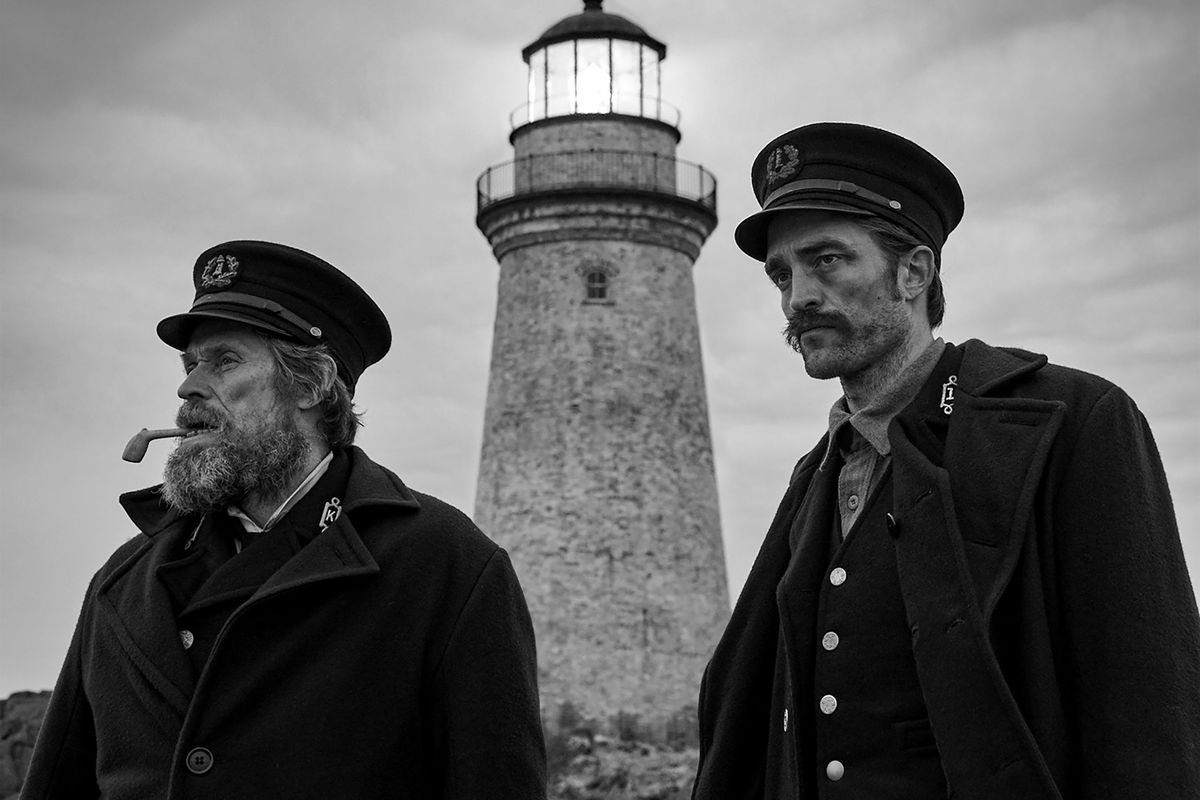The Lighthouse (2019) - Movie Review
I have been waiting forever for this movie to come out on either Amazon Prime or Netflix so when I saw it on Prime last weekend, I got so, so, so excited! The Lighthouse, from the previews, seemed like it would be a really awesome cosmic-horror or psychological horror, especially because it was made by the same person who did The VVitch.
This review is spoiler-free so carry on without worry…
The Movie
From Robert Eggers, the visionary filmmaker behind modern horror masterpiece The Witch, comes this hypnotic and hallucinatory tale of two lighthouse keepers on a remote and mysterious New England island in the 1890s. – The Lighthouse website
The Lighthouse was released in 2019, and was directed/produced by Robert Eggers, who co-wrote the screenplay with his brother Max Eggers. One unique thing about the movie is that it was shot in black-and-white with a 1.19:1 aspect ratio.
It stars Willem Dafoe and Robert Pattinson as two lighthouse keepers who either start to lose their sanity, or were already nuts, when a storm strands them on the remote island where they are stationed. The story in this movie gets crazy pretty fast to say the least. There’s vengeful seagulls, superstitions, lots of lies and unreliable characters, and the mystery of the light in the lighthouse itself.
In some interviews, Eggers said this film was partially inspired by Edgar Allan Poe's fragment "The Light-House”. The film had its world premiere at the 72nd Cannes Film Festival.
Review
Let me start this section by saying that, personally, I just think that, when I watch a movie, I want to… just enjoy a movie. Obviously movies can be heavy on themes, imagery, or whatever, but I don’t want to spend most of a movie feeling just plain bamboozled. Which was exactly the case with The Lighthouse.
I won’t go into particulars because it only recently came out on Prime and I don’t want to ruin it for anyone else.
Obviously, there is a difficult line to tread when you want to make a film that deals heavily with human psychology but, this movie just … lost me.
I want to be fair with this movie, because I am someone who has never cared for overly artsy films so for a well-rounded look, The Lighthouse did receive a lot of good reviews:
A Beacon of Hope in Cinematic Darkness: Robert Eggers’s horror-fantasy about a pair of men tending a lighthouse at the end of the 19th century is one of the most original films of the year. – The Wallstreet Journal It’s not just a film about two people on the edge of sanity, it uses sound design and filmmaking tools to push you there too. It has the feel of watching someone else’s nightmare, and it’s not one that’s going to end well. While it’s ultimately a bit too self-conscious to provoke the existential dread and true terror of the best films like it, it’s still an impressive accomplishment thanks to Eggers’ fearlessness and a pair of completely committed performances. – rogerebert.com [Eggers] has created a story about an age-old struggle, one that is most satisfyingly expressed in this film’s own tussle between genre and its deviations. – New York Times
Honestly, after the movie ended and left me more than a little confused, I Googled other people's take on the film and its ending. It didn’t really illuminate things and left me just feeling that I didn’t get anything out of this movie.
I don’t think I’m a lazy viewer, I like it when films put in the effort to have special details, Easter eggs, hidden meanings, but The Lighthouse? I don’t know.
Just didn’t do it for me.The main issue was I was so confused throughout the entire two hours that I couldn’t enjoy it. Second, the ending left me disappointed because I was expecting more.I did like the style the movie was filmed in, as well as the audio that lent a lot of atmosphere to the film.
Score: 4/10
x P.L. McMillan
p.s. the sites I found said a lot about Greek mythology in regards to some of the themes in this movie. But that’s all I’m giving you. Watch it and comment below what you think.
